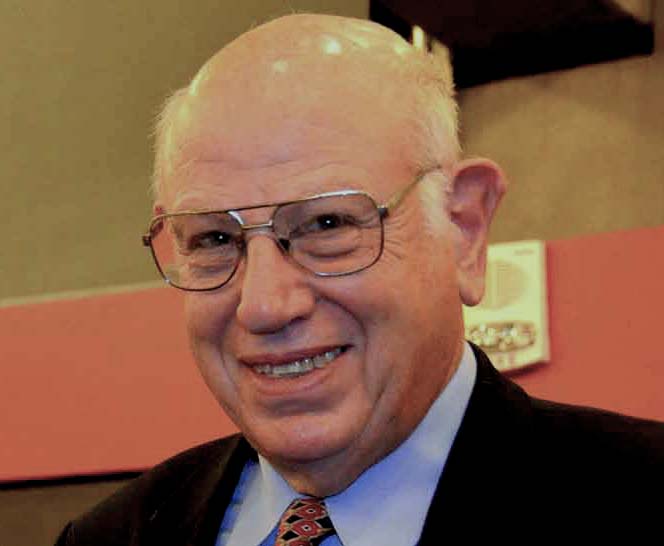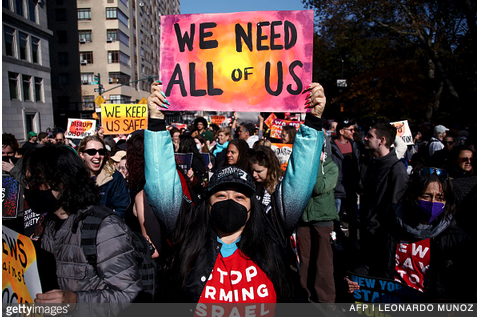by Herb Rothschild Published January 27 on Ashland.news
Imagine if we Americans awoke to the headline, “Mexico to form a military alliance with China. Chinese troops and weapons may be stationed along the Rio Grande.” What would we want our national leaders to do? Stay silent because, as a sovereign state, Mexico has a right to decide to form the alliances it chooses?
Now imagine that the following day we awoke to the headline, “Canada to form a military alliance with China.” If Washington still remained silent, the Jan. 6 assault on the Capitol would look like a minor skirmish compared to what a frightened and angry populace would do.
As Gary Leupp, a professor of History at Tufts University, wrote in CounterPunch on Tuesday, “In 2008 Moscow informed Washington at the highest level that expansion of NATO to include Georgia and Ukraine would constitute a ‘red line.’ Everybody knows what that means. Here it meant specifically: ‘Stop expanding your anti-Russian military alliance to surround us; it makes us very, very uncomfortable. You can’t imagine how uncomfortable, having never suffered a massive invasion of your country, as we did in 1941, 1914, 1812, 1707, 1605. We don’t like the idea of a country larger than Texas, sharing a long border with us, and linked with us by history and family ties, becoming a repository of NATO weaponry and base for the invasion of our country.’ … The brief 2008 Russo-Georgian War resulted in the humiliation of the Georgian forces, the disgrace of the puppet leader, and Moscow’s recognition of the two republics of South Ossetia and Abkhazia. A red line is a red line.”
Astonishingly, that recent history hasn’t seemed to inform our response to Russia’s military build-up on the Ukrainian border. While presenting ourselves as willing participants in negotiations to avoid a military conflict, we refuse to acknowledge the overwhelming importance of Russia’s security concerns. Just Thursday, Russian Foreign Minister Sergey Lavrov said that the letter sent by the U.S. and NATO setting out their negotiating positions failed to address Moscow’s concerns over the eastward expansion of the military alliance.
“There is no positive reaction on the main issue in this document,” Lavrov told journalists in Moscow. “The main issue is our clear position on the inadmissibility of further expansion of NATO to the East and the deployment of strike weapons that could threaten the territory of the Russian Federation.”
When the Berlin Wall came down in 1989, I was directing a large peace organization in northern New Jersey. That event seemed the gratifying culmination of 11 years of my work in the nuclear disarmament movement. That extraordinary outpouring of grassroots activism in the U.S. and Europe had induced Ronald Reagan to reverse his stance on our relations with the USSR. He came into office asking the country to prepare itself for a nuclear war. In 1985, he began serious negotiations with Gorbachev, which culminated in the Intermediate Range Ballistic Missile Treaty. That moment, in effect, marked the end of the nuclear arms race. Did anyone note how quickly the Soviet Union said “yes” as soon as we proposed it? Hadn’t we been told all along that the driving force of the arms race was the Evil Empire?
Then and now, it’s always “them,” never us.
That was the end of the nuclear arms race. The end of the Cold War itself soon followed. The Charter of Paris for a New Europe, signed on Nov. 21, 1990, brought the Soviet Union into the Conference on Security and Co-operation in Europe, which was renamed the Organization for Security and Co-operation in Europe (OSCE). Present George H.W. Bush signed the START I treaty with Gorbachev, the beginning of the reduction of the two nations’ nuclear arsenals. Bush and Gorbachev worked out numerous other assurances that superpower hostilities were behind us. The voluntary end of the USSR and the Warsaw Pact, the Soviet counterpart to NATO, followed.
NATO was not disbanded at the same time, although its raison d’etre was to protect western European states from a Soviet invasion. Why wasn’t it disbanded? In 2020, Joshua Shifrinson, an international relations scholar at Boston University, addressed that question in an article in International Politics titled “NATO enlargement and US foreign policy: the origins, durability, and impact of an idea.” He wrote that by mid-1992, a consensus emerged within the Bush administration that NATO enlargement was a wise realpolitik measure to strengthen American hegemony. They worried that the European Union might fill the security vacuum left in central Europe by the withdrawal of Russian forces and thus challenge American post-Cold War influence.
Thus, NATO expanded. In 1999, the Czech Republic, Hungary and Poland were admitted. In 2004, with the admissions of Estonia, Latvia and Lithuania, along with four other states, it had expanded to Russia’s northwest border. Russia vigorously protested that move, arguing that it broke the Paris agreement of 1991. Thus, far from being a disingenuous excuse for a takeover of Ukraine, Russian alarm over the implications of NATO expansion for its national security has been longstanding and consistent.
There is scholarly debate about whether the Soviet Union was given assurances at the time of the Paris accord that NATO’s military presence wouldn’t expand eastward. Everyone agrees that when Bush and Gorbachev negotiated the reunification of Germany, Bush pledged not to station non-German troops in former East German territory. In his statement Thursday, Lavrov asserted that the US and NATO had agreed within the context of OSCE not to expand at the expense of Russia’s safety. Gorbachev has said recently that there was no discussion of a more encompassing pledge, but also that he regards the eastward expansion as a violation of the spirit of Paris.
Why won’t the U.S. and NATO pledge to Putin not to bring Ukraine and Georgia into the military alliance? If Putin is just blowing smoke, such a pledge will expose his bad intentions and unite the world in resistance. If he isn’t, at a minimum thousands of lives will be saved and the US will be spared the choice between a defeat similar to what happened with the Russian invasion of Georgia or a military confrontation that might mean the end of the human race.
Oh, but what about the fact that Ukraine wants to join NATO and that Article 10 of its charter says that NATO membership is open? Article 10 also specifies that a state will be admitted if its admission will contribute to peace in Europe — presumably NATO’s mission. Well, admitting Ukraine obviously will not contribute to peace in Europe. What it will do is abet our nation’s quest for unchallenged global hegemony, a quest which led us to pass up the chance to create an enduringly peaceful international order after the Cold War ended.
Email Ashland.news board member and columnist Herbert Rothschild at herbertrothschild6839@gmail.com.


